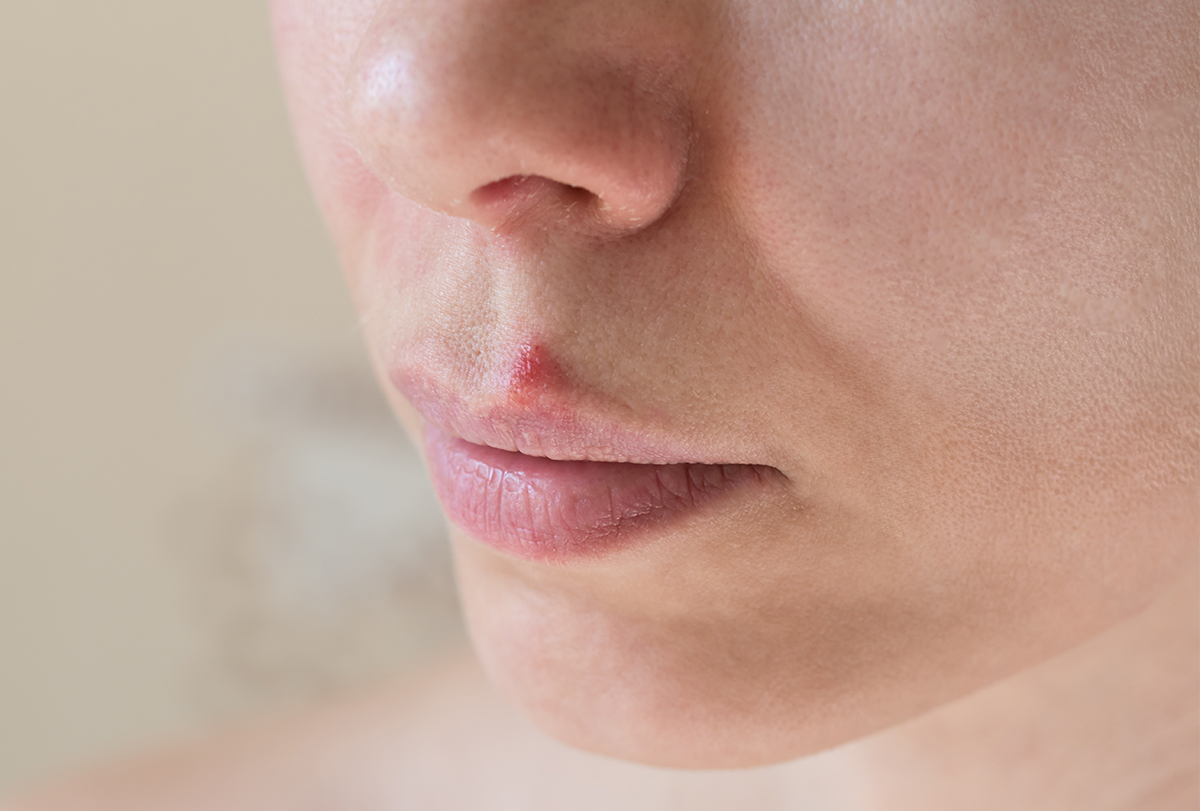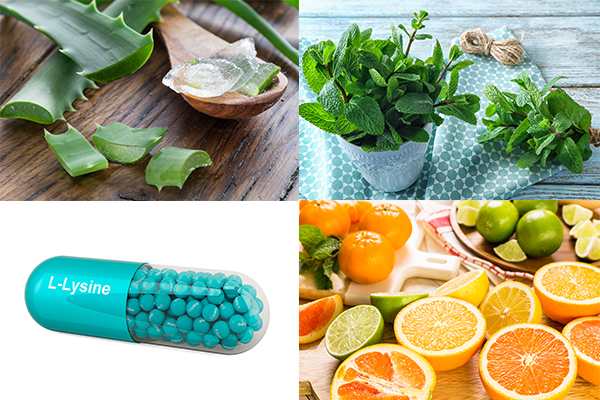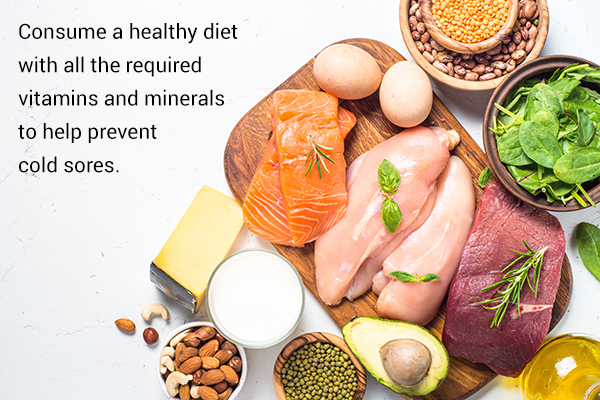In this article:
“Cold sores” is a term used to describe the blisters caused by the herpes simplex virus around the mouth and lips. It is also known as herpes labialis.

Although cold sores are not a serious medical condition, they can be painful and contagious. (1) These sores usually tend to resolve within a couple of weeks with proper management. (2)
Home Remedies for Cold Sores
Here are some easy home remedies you can try to speed up the healing process:
1. Apply aloe vera gel
Aloe vera gel is touted as a natural topical remedy for HSV breakouts. (3) It exhibits potent antimicrobial and anti-inflammatory properties and thus can help heal wounds faster and soothe the pain and irritation caused by cold sores. (4)
How to use:
- Apply fresh aloe vera gel to the sores twice or thrice a day.
- Wash your hands thoroughly with soap afterward.
2. Use lemon balm topically
Lemon balm is an antioxidant and antiseptic agent with several medicinal properties. (5) It can be used to decrease the healing time for cold sores. (6)
How to use:
Apply a lemon balm-based cream to the affected area thrice a day.

3. Give L-lysine a try
L-lysine is an essential amino acid that helps boost collagen production and heal wounds fast. It interferes with the viral replication of HSV-1 in the body. (7)
How to use:
- L-lysine can be consumed in the form of oral supplements to fight the infection.
- It is also found in topical formulations.
4. Use vitamin C
Vitamin C is a well-known antioxidant and anti-inflammatory compound. It also promotes collagen production, which is essential in the healing of sores. (8)(9)
How to use:
- Vitamin C supplements can be taken orally.
- Ascorbic acid creams can be applied to the sores twice a day.
Causes of Cold Sores
Cold sores occur due to viral infections, and the herpes simplex virus (HSV) is the most common trigger. This virus spreads from one person to another via direct skin-to-skin contact. It can stay dormant in your body for life once you are infected. (10)
HSV can cause breakouts of cold sores when it is activated in the body. Several factors such as weakened immunity and chronic illnesses can activate the virus. (11)
Symptoms of Cold Sores
The common symptoms of cold sores include:
- Painful blisters (12)
- Fluid or pus discharge from the sores
- Fever or chills
- Eye infections if the cold sores spread to the eyes
- Itching or skin irritation
Treatment for Cold Sores
In most healthy individuals, cold sores may resolve on their own without medical intervention. (13)
However, your doctor may prescribe some antiviral medications to help them heal faster. Some of these include:
- Topical antiviral formulations such as penciclovir cream
- Antiviral tablets such as acyclovir or valacyclovir.
- Zinc oxide ointment to soothe irritation and promote healing (14)(15)
Diagnosing Cold Sores
Your doctor may diagnose cold sores simply by examining them. At times, they may ask you to undergo diagnostic tests, such as skin biopsies and blood tests, to confirm the diagnosis. (11)
Prevention for Cold Sores

To decrease your risk of cold sores, observe the following precautions:
- Consume a healthy diet with all the required vitamins and minerals.
- Use sunscreen to avoid UV exposure.
- Avoid direct skin-to-skin contact with an individual affected by cold sores.
- Do not use your razor during a cold sore breakout.
- Do not touch your eyes when you have cold sores to avoid eye infections.
- Try to avoid stress. (16)
Risk Factors for Cold Sores
Common factors that can put you at risk of developing cold sores include:
1. Contact with an affected individual
HSV-1 is spread via skin-to-skin contact, and you can develop the sores after coming in close contact with an affected individual.
2. Exposure to UV radiation or sun
If you have a dormant HSV infection in your body, excessive exposure to sunlight or other UV light can activate the virus and cause cold sores.
3. Stress
Both physical and mental stress can cause cold sores by compromising your immunity.
4. Weakened immune system
Having a weak immune system due to certain health conditions or age (babies under 3 years and elderly people above 60 years of age) can be a risk factor for cold sores.
5. Chronic illnesses
Certain medical conditions such as diabetes or chronic kidney disease can compromise your immunity and make you prone to developing cold sores. (17)
When to See a Doctor
Make sure to consult a doctor if your sores have not healed after 2 weeks or if you have sores near the eyes.
It is important to follow up with your doctor if you develop multiple cold sore breakouts in a year or if you have a weak immune system. (18)
Most-Asked Questions About Cold Sores
How are cold sores treated?
Cold sores can heal on their own in 2–3 weeks in a healthy individual. Your doctor may prescribe antiviral or anti-inflammatory medications to help them heal faster.
Can cold sores be prevented?
HSV is spread via direct skin-to-skin contact. You can prevent them by avoiding direct contact with affected individuals. (19)
Final Word
Cold sores are a common skin condition caused by the herpes simplex virus. It is estimated that more than 15 million people in the USA carry this virus.
Many people are asymptomatic but some may suffer from cold sores now and then. While the condition may be painful, it is usually not serious and can be resolved with proper intervention.
- Was this article helpful?
- YES, THANKS!NOT REALLY


